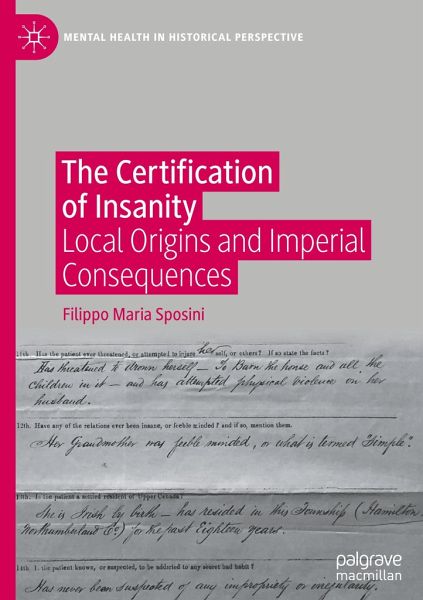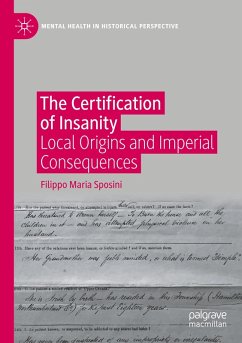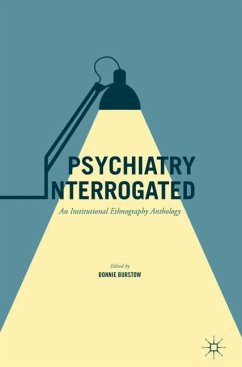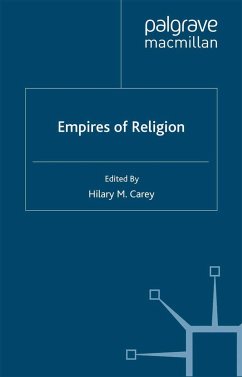
The Certification of Insanity
Local Origins and Imperial Consequences
Versandkostenfrei!
Versandfertig in 6-10 Tagen
98,99 €
inkl. MwSt.
Weitere Ausgaben:

PAYBACK Punkte
49 °P sammeln!
This book represents the first systematic study of the certification of lunacy in the British Empire. Considering a variety of legal, archival, and published sources, it traces the origins and dissemination of a peculiar method for determining mental unsoundness defined as the 'Victorian system'. Shaped by the dynamics surrounding the clandestine committal of wealthy Londoners in private madhouses, this system featured three distinctive tenets: standardized forms, independent medical examinations, and written facts of insanity. Despite their complexity, Victorian certificates achieved a remark...
This book represents the first systematic study of the certification of lunacy in the British Empire. Considering a variety of legal, archival, and published sources, it traces the origins and dissemination of a peculiar method for determining mental unsoundness defined as the 'Victorian system'. Shaped by the dynamics surrounding the clandestine committal of wealthy Londoners in private madhouses, this system featured three distinctive tenets: standardized forms, independent medical examinations, and written facts of insanity. Despite their complexity, Victorian certificates achieved a remarkable success. Not only did they survive in the UK for more than a century, but they also served as a model for the development of mental health laws around the world. By the start of the Second World War, more than seventy colonial and non-colonial jurisdictions adopted the Victorian formula for making lunacy official with some countries still relying on it to this very day. Using case studies from Europe, the Americas, and the Pacific, this book charts the temporal and geographical trajectory of an imperial technology used to determine a person's destiny. Shifting the focus from metropolitan policies to colonial dynamics, and from macro developments to micro histories, it explores the perspectives of families, doctors, and public officials as they began to deal with the delicate business of certification. This book will be of interest to scholars working on mental health policy, the history of medicine, disability studies, and the British Empire.














